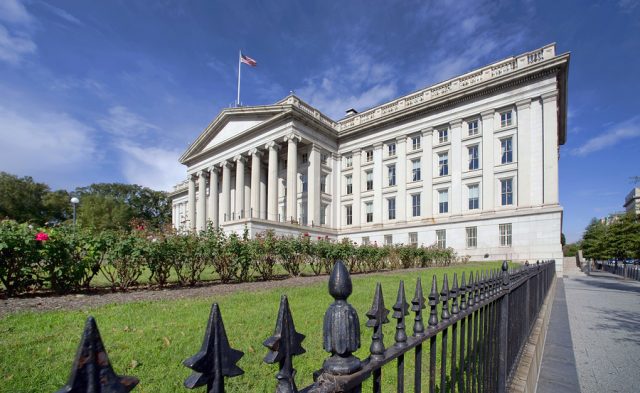The federal budget deficit of the United States jumped in October by 34% year on year, reaching $134.5 billion, announced Wednesday evening the US government. At this rate, economists estimate that over the whole of the 2020 year (which will end next September), the deficit should exceed $1 trillion for the first time in eight years. This would be a result of the expansionary economic policy of the Trump administration.
Federal spending increased in October by 8% compared to October 2018 to $380 billion, driven by defense, education, health and social security posts. Conversely, revenues decreased by 3% to $246 billion. Indirect tax revenues (“Excise taxes”) have fallen sharply and personal and corporate tax revenues have also fallen since 2019.
Cautionary note from Jerome Powell on the federal deficit
These figures were released while Jerome Powell, the president of the Federal Reserve had warned against the rise in the deficit at a hearing on Wednesday, before a congressional commission.
“You do not need to balance the budget or lower the debt, you just have to make the economy grow faster than the debt,” he said. But, with interest rates already very low after three successive declines, the Fed has limited room for maneuver, warned Jerome Powell. He responded indirectly to the harsh criticism of Donald Trump, who accuses the Fed of clamping down on the economy at too high a rate and asking for negative interest rates.
Revenue from customs duties jumped 39% in one year to reach $7.8 billion against $5.6 billion a year earlier, as a result of tax increases imposed on Chinese products by the Trump administration. Despite their rise, tariffs are only a small part of the overall revenue of the US federal state.
For fiscal year 2019, completed last September, the budget deficit has already reached almost $1,000 billion, jumping 26% from 2018 to reach $984 billion, or 4.6% of US GDP. The deficit had exceeded $1,000 billion for four years, from 2009 to 2012 (when it peaked at $1,100 billion), under the effect of the crisis of subprime loans before falling back and then rising again to from 2016.










